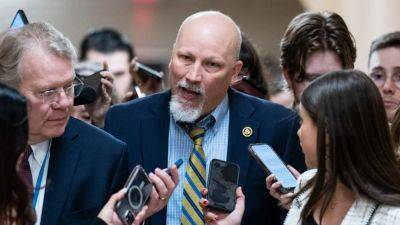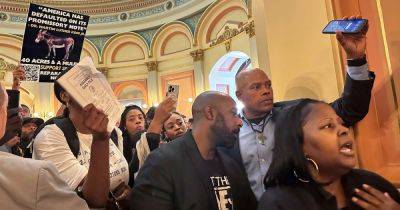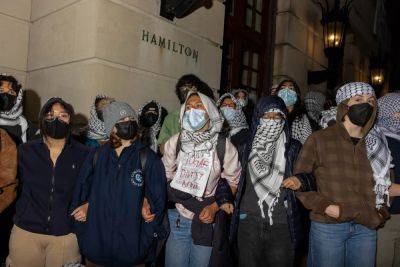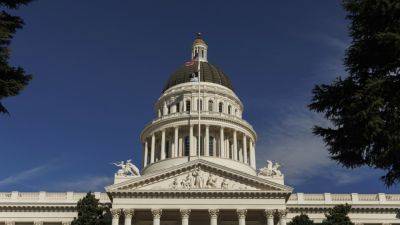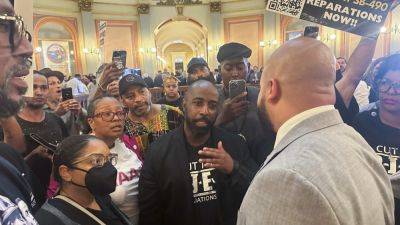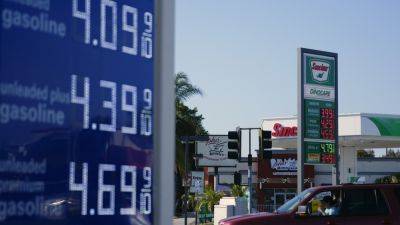Are mask ban laws about public safety or for lawmakers to quiet protesters? The controversies of face coverings outlined
The mask wars didn’t end with Covid.
First, they were a public health imperative. Then they were banned in a conservative backlash. And now, in the wake of nationwide Israel-Palestine protests, lawmakers are trying to ban face coverings of all kinds, in a move many see as a strategy to yank the face masks off pro-Palestine voices and silence dissent.
Ohio warned its public universities that protesters could be charged with a felony under an obscure anti-mask law. Officials in Texas justified their police response to campus protests in part because students were wearing masks. Eight student protesters at the University of Florida were charged with misdemeanors, including wearing masks in public. And, in June, North Carolina passed a mask ban over the objection of its governor, adding extra penalties for crimes committed while wearing a mask and raising the punishment for activists who block traffic.
Backers of the efforts say the measures will increase public safety and protect minority communities from vigilante violence, but activists and legal experts tell The Independent the provisions could do the exact opposite: exposing protesters to potentially violent police interactions, threatening immunocompromised people, and silencing pro-Palestinian activism despite being ostensibly neutral.
Most recently, the University of California system, the nation’s largest, directed campuses to forbid students from wearing masks “with the intent of intimidating any person or group” or evading identification while breaking the law or school policy.
This approach troubles political science professor Graeme Blair of UCLA, which was home to a large Palestinian solidarity encampment that was attacked by a mob of masked counter-protesters


